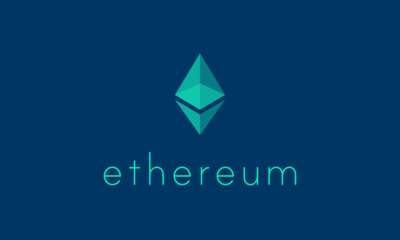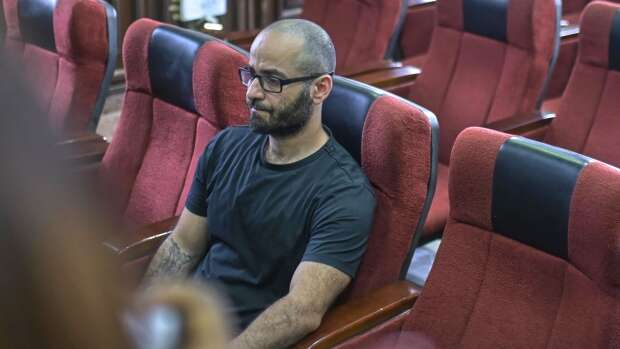A digital artwork that only exists as a high-resolution file by British artist Adrian Chesterman, and which showcases the parallel between traditional money and cryptocurrencies like Bitcoin, is expected to surpass its reservation price of $160,000.
The Crypto Train, which is now in an online auction specializing in the hottest new investment trend, Non-Fungible Tokens (NFTs), was viewed by several of its owners’ high profile clients before going live.
NFTs are digital collectibles that are encoded onto a blockchain – the same technology on which cryptocurrencies run – creating a unique digital watermark showing ownership and the digital rights to that collectible.
In recent months many major household name artists and musicians, as well as global sports franchises and fashion brands have launched their own NFTS. In April, auction house Christie’s sold a digital-only artwork, and it became the third-most-expensive work ever sold by a living artist.
“Even before The Crypto Train went to auction, we received significant offers from serious crypto enthusiasts and Silicon Valley investors who are the ones who currently seem to most understand this exploding virtual investment trend,” says Stephen Howes, Director of Thomas Crown Art, a leading independent international art agency.
He continues: “They know – like most major global brands are just now only getting to know – that NFTs are an investment megatrend of the decade.
“This is the next stage in art history and they don’t want to miss out on the early adoption stage. This is why they were expressing keen interest before the auction, probably hoping to bag themselves a bargain.
“This pre-auction interest suggests that the artwork will surpass its $160,000 reservation tag. I wouldn’t be surprised if it were eventually sold for $270,000+, such is the demand.”
Howes adds: “But the interest is not only driven by investment potential. In its own right as a piece of art, it’s a fascinating piece which depicts the never-seen-before battle for dominance between traditional and cryptocurrencies in the increasingly digitalised global financial system.”
The Crypto Train
Of the digital artwork, internationally renowned artist Adrian Chesterman (London, 1955) says: “My mission was to create a visual metaphor which could bridge the historic distance between traditional monetary mechanisms, such as gold and coins, and the new virtual world of cryptocurrency, such as Bitcoin and Ethereum.
“I considered a locomotive to be the perfect vehicle to represent such a metaphysical journey, being as it is a land-based, fast-moving machine that relentlessly pushes in one direction…. forwards. A mechanical beast that is powerful, unstoppable, magnificent, man-made but inherently beautiful.”
He goes on to add: “Wealth and its material presentments, such as gold, coins, banknotes and crypto, are all functional solely by the consent of society.
“They have ‘value’ only by the fact we are all in agreement that they should have value as such.
“Therefore, cryptocurrency has the same effective value as any of the others, even gold which of course has no inherent value of its own. We imbued the monetary value upon it, same as banknotes, coins and crypto, by mutual consent.
“This is why the monetary representations contained within the image are semi-transparent and nebulous, here but not here, ethereal but real. For now, anyway.”
The Artist
Chesterman had his first exhibition of paintings at Liberty’s in Regent Street whilst still at the Royal College of Art London, progressing to exhibitions in the Pompidou Centre in Paris, amongst other major international galleries.
A multi-talented artist, he has worked on the publicity art for Spielberg’s Jurassic Park; the set for Andrew Lloyd-Webber’s Sunset Boulevard; advertising commissions for Coca Cola; original designs for theme parks in the United Arab Emirates and China; Spiderman games for MGA in Los Angeles; illustrated innumerable book covers, notably for Jackie Collins, Jack Higgins and Dick Francis; and he has illustrated many music album covers including the acclaimed Bomber cover for Motörhead, The Meaning of Life album and book cover for the Monty Python team and the acclaimed The Road to Hell album cover for Chris Rea, amongst many other projects.
NFT skeptics
Of Chesterman’s The Crypto Train digital artwork, Stephen Howes recognizes that there are still many NFT skeptics.
He affirms: “Those who knock the idea of art solely in digital form would have been those people who knocked the potential of the internet in the 90s and who would have said Amazon as an online retailer ‘won’t catch on’ in the 2000s.”


 Naira4 weeks ago
Naira4 weeks ago
 Naira4 weeks ago
Naira4 weeks ago


 Naira4 weeks ago
Naira4 weeks ago




 Naira3 weeks ago
Naira3 weeks ago
 Commodities4 weeks ago
Commodities4 weeks ago


 News4 weeks ago
News4 weeks ago


 Banking Sector4 weeks ago
Banking Sector4 weeks ago
 Travel4 weeks ago
Travel4 weeks ago























